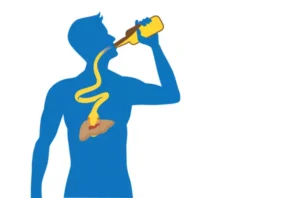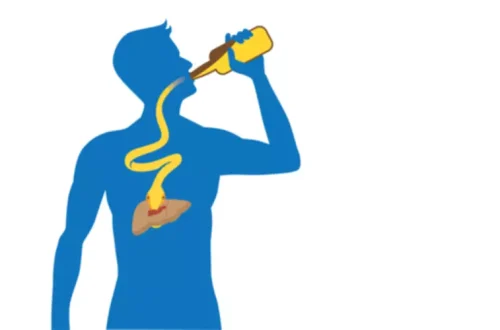
Although well-intentioned, this behavior doesn’t help them in the long run and won’t encourage them to seek help. A crucial initial step is acknowledging the financial impact of the how does alcohol affect relationships problem. This recognition can aid you in formulating a comprehensive plan to manage resources more effectively. Financial planning and budgeting are indispensable in these circumstances as they enable you to understand the financial landscape better and make more informed decisions.Seeking professional assistance is another viable approach. Financial advisors or counselors can provide critical advice on managing debt, creating a sustainable budget, and rebuilding financial health over time.

How To Know If Alcohol Abuse is Affecting Your Relationships

For example, studies have found the marriage effect only for women, only for men, or for both men and women (Leonard & Rothbard 1999). Most of the research has focused on young adult participants, and few researchers have examined the marriage effect later in life. Bogart et al. (2005) found the marriage effect for marriages that occurred under 20 years old, and for marriages occurring in the 20s, which is developmentally normative. It is unclear whether marriage later in the 30s has the same protective effect.

How to help someone with depression?
These statistics highlight the prevalence and urgency of addressing alcohol addiction. Discover support, therapy, and prevention methods to overcome the challenges. Not only does it take a toll on the individual struggling with addiction, but it also affects the lives of those closest to them. Sometimes, one spouse may enable the alcoholic by covering for them or making excuses. Dr. Christine Traxler MD is a Minnesota-based family practitioner and writer, having written dozens of medical texts, study guides, and scientific articles. She currently practices medicine in Kailua-Kona, Hawaii, and writes books in her spare time.

Family Therapy Benefits

By actively participating in the recovery process, families can play a significant role in helping their loved one overcome addiction and reclaim family harmony. Two key aspects of supporting recovery efforts are the role of family support and preventative measures. By recognizing the specific impact of parental substance misuse and the challenges faced by blended families, individuals can better understand the dynamics at play and take steps towards reclaiming family harmony. Through professional help and a supportive environment, families can work towards healing, resilience, and a brighter future for all members involved. Children growing up in homes where parental substance misuse exists often face disruptions in family routines, witness parental conflicts, and lack a sense of security and stability. These disruptions can have a lasting impact on their cognitive and emotional development, leading to a higher risk of co-occurring mental disorders 3.
Remember, while you can offer love, encouragement, and support, the decision to seek help for alcohol addiction must ultimately come from the individual themselves. Be patient with your loved one and with yourself through this challenging journey.Once your loved one is ready to seek help, the next step is exploring treatment options. This may include counseling, detox programs, or residential rehabilitation centers. Researching different programs and discussing these options with your loved one is important. The most effective programs often alcoholism include a combination of therapies, such as individual counseling, group therapy, and family counseling. These data also indicate an association between being a parent and reductions in frequency of drinking and frequency of heavy drinking from prepregnancy among both men and women.
- Alcoholism can profoundly affect families and relationships, leading to emotional, financial, and social challenges.
- One of the major advances in our understanding of acute alcohol consumption and IPV has been the use of event-based techniques.
- Alcoholism can inflame relationship stressors, such as financial difficulties and child care issues.
How To Support Your Loved One In Recovery From AUD
Whether your loved one goes to alcohol rehab or they attend support group meetings, family members can support alcoholics while they’re trying to recover from alcohol addiction. Help from friends and family is a major component of recovery from alcoholism. If we are a friend or family member of a person with an alcohol use disorder (AUD), we might be searching for ways to better understand our loved one’s behaviors. It can feel like a struggle not to internalize their hurtful actions, but the reality is that people with an alcohol problem may not fully understand the impact that their actions have on friends and family. Unfortunately, many with alcohol use disorders don’t realize the impact on their family. Often times, denial is a big part of not taking control of one’s drinking habits.
- In 2022, 3.2 million youth ages 12 to 20 reported binge drinking at least once in the past month, while approximately 646,000 youth ages 12 to 20 reported binge drinking on five or more days over the past month 6.
- Family members also benefit from support groups or counselling, which can provide them with coping strategies and insights on how best to support their loved one, fostering a healthier, more resilient family unit.
- It is also plausible that drinking together serves as a positive relationship event for concordant heavy drinkers but not for discordant couples.
- If you need help with your substance use disorder, we are here to help you build your confidence and momentum towards the future you want.
- Supporting children in these situations includes providing a stable environment and encouraging open communication about their feelings.
- She is a double-board certified physician with specialties in general adult psychiatry and addiction medicine.
Families and relationships suffer as alcohol abuse impacts communication, trust, and emotional well-being. Overcome Wellness & Recovery is dedicated to providing resources and treatment options to help alcoholics and their loved ones. In this blog post, we’ll discuss how alcohol abuse affects families and relationships and highlight the treatment options available at Overcome Wellness & Recovery.
- Such families are often recruited from families in which one person has sought treatment.
- In addition, there was evidence that husband recovery had a salutary effect on the alcohol problems of the wife, indicative of reciprocal effects of husband and wife drinking on each other’s recovery.
- Whether or not your loved one is in treatment for their addiction, don’t wait to start the healing process for yourself and others in the family.
- Her areas of expertise in medicine include women’s health, mental health, and integrative nutrition.
- As alcohol abuse progresses, sufferers are likely to withdraw from society at large and may lash out at well-meaning acquaintances who seek to help them come to grips with addiction.
Alcohol use disorder (AUD), commonly called alcoholism, is often called a “family disease” because it impacts more people than just the individual with alcohol addiction. Addiction happens in all types of families, and its emotional side effects are felt by spouses, children, and other loved ones. Their lives, behaviors, and attitudes can change forever as a result of the disease. They can even experience anxiety, depression, and shame as a result of alcohol addiction. Living in a home with alcohol addiction can lead to disruptive behavior, tension, and strained relationships—all of which can cause significant stress on the family unit.
